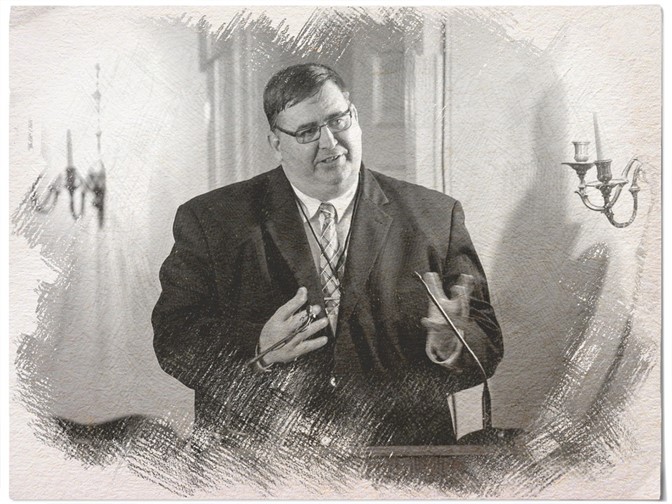“Why should clients want your fiduciary advice?”, I asked my students, on the first day of my Retirement Planning class at Western Kentucky University. “Let me put this differently … what is the true value of personal financial advice?”
Most of the students I had taught in previous classes, so it was no surprise when several provided answers, all at once. “Protection,” said one. Another student said, “Because planning for retirement is complex.” Still another, realizing that on the first day of class the answer might be derived from the title of the class itself, espoused: “So the client can retire earlier.”
The student replied, “There are a lot of wolves out there that sell products that are really, really expensive. And some of these have substantial risks.”
“That’s true,” I replied. “One of the functions of a fiduciary financial advisor is to protect clients against the ‘wolves,’ as you might call them. And the capital markets are complex and difficult to navigate. Planning to reduce tax liabilities over the long term, as well as identifying and mitigating various types of risks, are also important. But these are all just functions that a financial advisor does. I’m looking for something different.”
I paused a bit, then turned to the student who provided a different answer. “Why is retiring early important?”
The student thought for a second, and then said, “To be able to do other things in life.”
“Yes, that’s important. So, if I were to ask you, ‘What does money mean to you?’, what would you say?”
The student replied, “Money is financial freedom.”
I asked again, “What does ‘financial freedom’ mean?”
“The freedom to not work.”
“Why should that be a goal?” I inquired.
“So that I can pursue other activities,” the student replied.
“That’s true,” I stated. “And as we explore client’s views of retirement, in the weeks ahead, we’ll discover that strengthening and maintaining personal relationships – with family, and with friends – are often the impetus behind many of these activities, although personal illumination or just pure fun might be other motivations.”
I turned to the entire class. “What else might money mean to you?”
“Security,” said a tall student from the back row. I walked up the middle aisle toward the student, and I asked him: “What is ‘security’?”
“Peace of mind,” replied the student.
I queried again, “What does ‘peace of mind’ mean to you?”
The student thought for a moment, then said, “Freedom from worry.”
I retreated toward the front of the class, then turned to all my students. “As we ask this very important question, ‘What does money mean to you?’, most of your clients will either respond that it involves either ‘peace of mind’ or ‘the ability to engage in other activities in life.’ But, let me return to my first question. What is the true value of personal financial advice … what is the result of accomplishing either greater security or bucket list items.?”
The students were silent. Instructors have been trained to wait 30 seconds for an answer. As the seconds passed away, I was prepared to ask the question differently, but a student – who rarely spoke out in class – raised her hand. I nodded toward her.
“Happiness,” she said.
I smiled, “That is precisely the benefit that great financial advisors bring to their clients. Greater happiness.” The student’s face beamed with self-satisfaction.
I continued, “When you dig deep into life’s great questions, such as ‘What is the purpose of one’s life?’ or ‘What makes for a quality life?’ – you will find a variety of answers. From enlightenment, to serving others, to providing for one’s family, to leaving a legacy, to making a positive impact upon the world, to love and to be loved, and to enjoying the activities and experiences the world has to offer. But, in the end, the fulfillment of these aims, ambitions or purposes leads to one thing – facilitating greater happiness for the individual.”
Turning to the shy student, once again, I stated: “So I ask, one more time, what is the true value of financial advice?”
“Facilitating greater happiness,” she replied.
Dr. Ron A. Rhoades serves as Director of the Personal Financial Planning Program at Western Kentucky University, where he is an Associate Professor of Finance within its Gordon Ford College of Business.
Called “Dr. Bear” by his students, Dr. Rhoades is also a financial and investment adviser with Scholar Financial, LLC. To request further information about Scholar Financial, LLC’s fees and services, please email AdvisorINFO@ScholarFinancial.com. Thank you.

Comments
One response to “Exploring the Real Value of a Fiduciary Financial Advisor: “Why?””
I miss being in your class and a trip to GA and NC